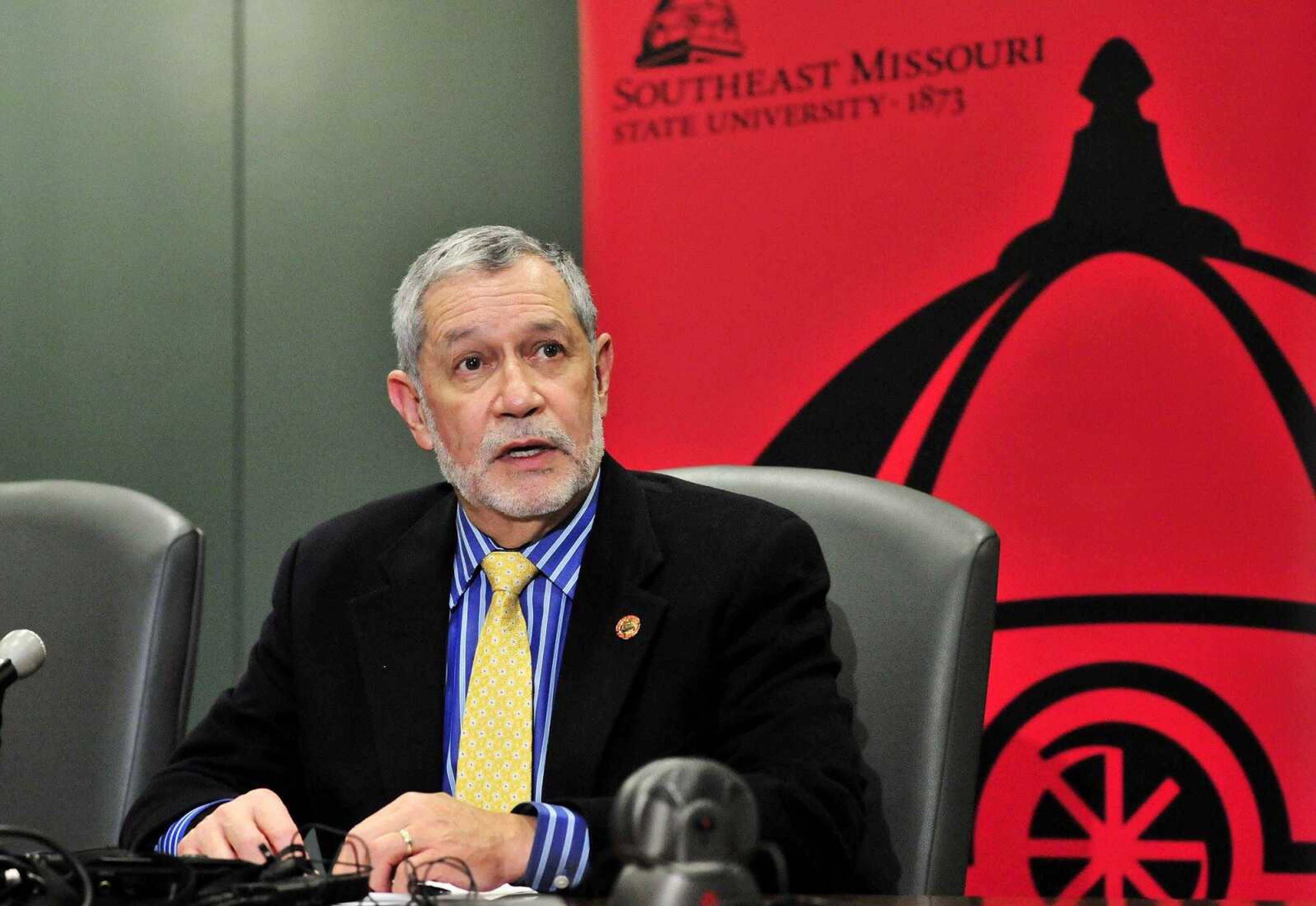Southeast president tries to reassure students about travel ban
President Trump's executive order banning immigrants from seven Muslim-majority countries has caused worldwide controversy and outrage. But Southeast Missouri State University president Carlos Vargas is trying to maintain a calm environment for all the university's students, including those dozen or so from the countries in question...
President Trump’s executive order banning immigrants from seven Muslim-majority countries has caused worldwide controversy and outrage.
But Southeast Missouri State University president Carlos Vargas is trying to maintain a calm environment for all the university’s students, including those from the countries in question.
“Southeast Missouri State University has a long history of accepting and educating international students,” Vargas said in an email to Southeast students Monday. “It is extremely important that you understand that this University will continue to welcome, support and assist our international students, faculty and staff.”
Southeast’s undergraduate and graduate student enrollment is about 12,000, of whom 883 are international students as of the beginning of the 2017 spring semester.
Fewer than a dozen of the international students have been identified as citizens of Iran, Iraq, Libya, Somalia, Sudan, Syria or Yemen.
The university has reached out to five students positively identified as originating from these countries to offer support and encouragement, Vargas said.
“With me actually being an immigrant in this country and starting here as an international student many years ago, I think I have a sense of the kind of concerns that they have and the anxiety that they have,” said Vargas, who came to the United States many years ago and became a naturalized citizen during a ceremony on Independence Day last year in Cape Girardeau.
“We wanted to reassure the students that we are going to be doing our best to work with them and try to answer their questions and help them understand, as much as we can, the latitude that they have in taking action or making sure that they abide by the law in the present circumstances,” Vargas said during a news conference Monday.
International students undergo rigorous vetting before being offered a student visa. According to U.S. State Department website, prospective students first must have a passport. Then they must be accepted by the school, which must be part of the Student and Exchange Visitor Information System.
Upon acceptance, the student must apply for a student visa, which involves a lengthy application, ability to provide additional documentation such as academic transcripts or statement of intent to leave the United States upon completion of studies, an in-person interview with the applicable embassy or consulate and associated fees.
This is in addition to the process students must undertake before admission to Southeast, Vargas told reporters.
“The application they submit is evaluated, and we confirm validity of the documentation they have. We rely on the agencies that actually validate some of these documents before we make an admission,” he said at the news conference, adding the students who apply often have character witnesses who vouch for them.
“We do have recruitment individuals who go and travel, make sure we have contact with individuals there who identify [prospective] students or help them identify us,” Vargas said.
When asked about Quazi Nafis, the Bangladeshi student who attended Southeast in the spring semester 2012 and later was convicted of trying to carry out a terrorist plot in New York City, Vargas said he couldn’t speak to those events because they happened before his arrival.
“I do know the university collaborated with investigations as much as we could, but there is little I can say about that,” he said.
The university has not identified any faculty members from the seven named countries, nor does the university have study-abroad programs there, Vargas said.
While the immigration ban directly affects only visa holders and immigrants from seven countries, “everybody is affected to some degree, to be honest,” Vargas said. “The community is concerned; many people in the U.S. are trying to grapple with what’s happening and how quickly this is developing.”
Vargas said he hopes the outcome of this order is not negative, especially with Southeast’s efforts to recruit international students.
“Many other countries have become aggressive in recruiting students from other countries,” he said, naming Australia and Canada in particular.
“It is difficult for me to speculate on the future,” Vargas said. “We all agree that this is the very beginning of this process. Not sure what the federal government, how it will be evolving, changing. Quite a bit of conversation at this point.”
He said judging by students’ reactions here, there is some degree of concern, but he hopes to reassure them enough so they may keep their focus on their studies.
In summary, Vargas said in his email to students: “I believe I understand the anxiety and the fear of the unknown that many of our international students, faculty, and staff are currently facing.”
He invited members of the campus community to call on him for reassurance and guidance.
“As you may remember, my inaugural theme was and continues to be ‘We Are One!’ There is no better time than now to stand together as a university community,” he said.
An image posted to the university’s Facebook page that shows Academic Hall — captioned “#YouAreWelcomeHere” — had 330 shares and 515 likes as of 6 p.m. Monday.
mniederkorn@semissourian.com
(573) 388-3630
Pertinent address: 1 University Plaza, Cape Girardeau
Connect with the Southeast Missourian Newsroom:
For corrections to this story or other insights for the editor, click here. To submit a letter to the editor, click here. To learn about the Southeast Missourian’s AI Policy, click here.











